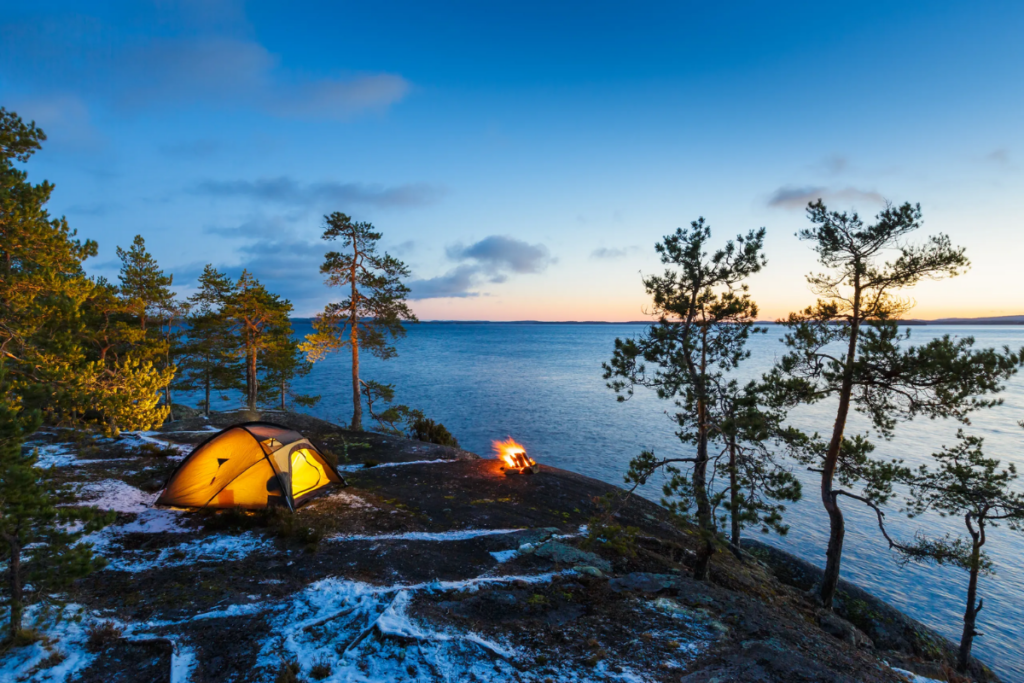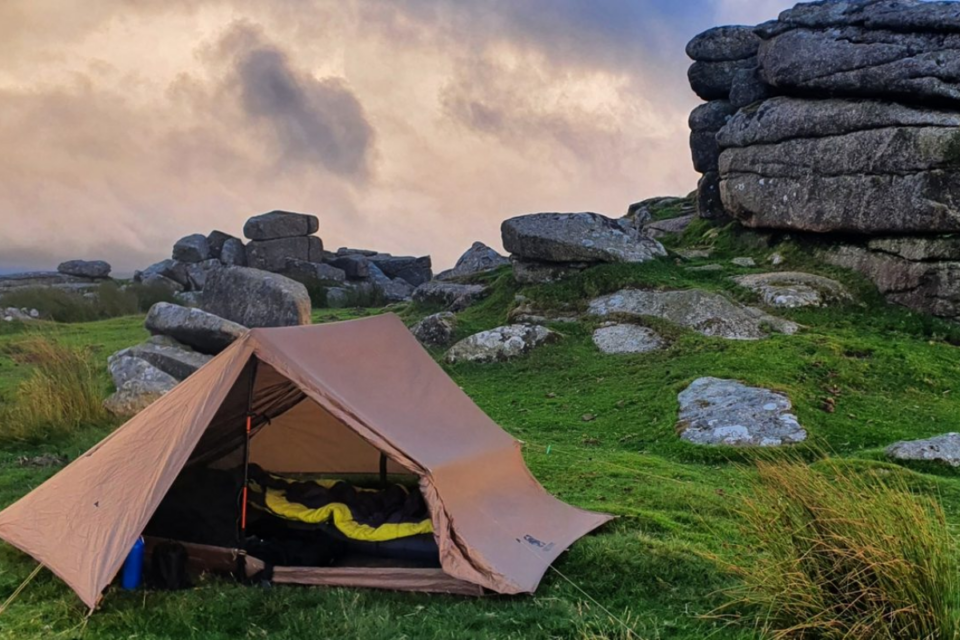Wild camping is an exhilarating way to experience nature up close and personal. As a beginner, stepping into the wilderness for the first time can feel daunting. However, with the right preparation and mindset, you can turn your adventure into a memorable and enjoyable experience. This guide will provide essential wild camping tips for beginners to help you get started on the right foot.
Choosing the Right Location

Before you embark on your wild camping journey, the most crucial decision is selecting the right location. While many countries have designated spots where wild camping is legal, some regions require special permissions or prohibit it altogether. Make sure to research local laws and regulations regarding wild camping to avoid fines or disturbances.
- Research Legal Wild Camping Spots: Countries like Scotland allow wild camping almost anywhere, while other countries may have restrictions. Apps and websites dedicated to wild camping can help you find legal spots.
- Consider Safety and Accessibility: Choose a location that is not too far from civilization in case of emergencies. Ensure the terrain is suitable for camping and accessible for hiking.
- Respect Nature and Local Regulations: Avoid camping on private land unless you have permission, and always be mindful of wildlife and the environment.
Packing Essentials
Packing the right gear is vital for a successful wild camping experience. Since you will likely be hiking to your camping spot, pack light but ensure you have all the necessary items.
- Key Gear: Start with the essentials, like a durable tent, a warm sleeping bag, and a sleeping mat. These will be your base for a comfortable night’s rest in the wild.
- Survival Essentials: Bring a first-aid kit, a headlamp or flashlight, a multi-tool, and a portable stove for cooking. Carry enough food and water to last the trip or a water purifier if you plan to source water from streams or lakes.
- Lightweight Packing Tips: Invest in lightweight gear like a compact tent and travel-sized toiletries. Every ounce matters when you are hiking to your campsite, so keep it minimal and practical.
Preparing for Different Weather Conditions

Mother Nature can be unpredictable, and weather conditions can change quickly in the wilderness. As a beginner, it’s important to be prepared for all kinds of weather, whether it’s sunny, rainy, or windy.
- Clothing Layers for Various Climates: Dress in layers so you can adjust easily depending on the weather. Wear moisture-wicking base layers, an insulating layer, and a waterproof jacket to stay dry and warm.
- Waterproofing and Wind Protection: Invest in waterproof gear, especially for your tent and backpack. Keeping yourself and your belongings dry is essential to avoid discomfort and potential health issues like hypothermia.
- Check Weather Forecasts: Before setting out, always check the weather forecast for your camping location. Knowing what to expect can help you pack more efficiently and avoid unnecessary risks.
Safety Tips for Wild Camping
Safety is paramount when camping in the wild. Being far from established campsites means you need to rely on your knowledge and preparation to stay safe.
- Navigating with Maps or GPS: Even if you’re familiar with your camping area, it’s important to carry a physical map and a GPS device. Cell signal may be weak or unavailable, so having a backup navigation method is essential.
- Emergency Contacts and Tools: Always let someone know where you’re going and when you plan to return. Carry a whistle, emergency blanket, and basic first-aid tools in case of an accident.
- Animal and Insect Precautions: Research the wildlife in the area and take necessary precautions. Store food in bear-proof containers or hang it from trees to avoid attracting animals. Use insect repellent to protect yourself from bugs.
Leave No Trace Principles
One of the most important wild camping tips for beginners is to respect nature and follow the Leave No Trace principles. These guidelines help protect the environment for future generations.
- Protecting the Environment: Avoid damaging vegetation and disturbing wildlife. Stick to established trails and camp on durable surfaces like rock or sand.
- Camp Responsibly: If campfires are allowed, keep them small and make sure to fully extinguish them before leaving. Consider using a camping stove instead to minimize the impact on the environment.
- Waste Management: Always pack out what you bring in. This includes trash, food scraps, and even biodegradable items. If there are no toilets nearby, dig a hole to bury human waste at least 200 feet away from water sources.
Setting Up Camp
Finding the perfect spot to set up your camp can make or break your wild camping experience. Here are some tips to ensure you have a safe and comfortable spot.
- Choosing the Right Spot: Look for flat, elevated areas to avoid pooling water if it rains. Ensure the site is sheltered from strong winds but has enough ventilation to prevent condensation inside your tent.
- Pitching a Tent on Uneven Terrain: If the ground is rocky or uneven, clear away debris and use sleeping pads for added comfort. Secure your tent with sturdy pegs and guy lines to keep it stable in windy conditions.
- Campfire Tips: If local regulations permit campfires, use established fire rings and gather dead wood from the ground. Never cut down trees, and always extinguish fires completely before going to sleep or leaving the campsite.
Enjoying the Wild Camping Experience

Once your camp is set up and safety precautions are in place, it’s time to enjoy the wild camping experience!
- Activities to Enjoy: Wild camping offers unique opportunities to connect with nature. Consider stargazing, wildlife watching, or exploring nearby hiking trails. It’s also the perfect time for photography or simply unwinding away from technology.
- Staying Comfortable and Calm: It’s normal to feel anxious on your first wild camping trip. To ease your mind, stay organized, keep essentials like water and snacks nearby, and embrace the peacefulness of the wilderness.
- Connecting with Nature: Wild camping allows you to experience the beauty of nature without distractions. Take the time to appreciate the solitude, the sounds of wildlife, and the serenity of being away from the hustle and bustle of daily life.
Conclusion
Wild camping can be an incredible way to immerse yourself in the great outdoors and create lasting memories. With these essential wild camping tips for beginners, you can confidently plan your adventure and enjoy the freedom that comes with it. Remember to stay safe, respect the environment, and embrace the journey.
For more camping tips and resources, visit CampingMinds.

